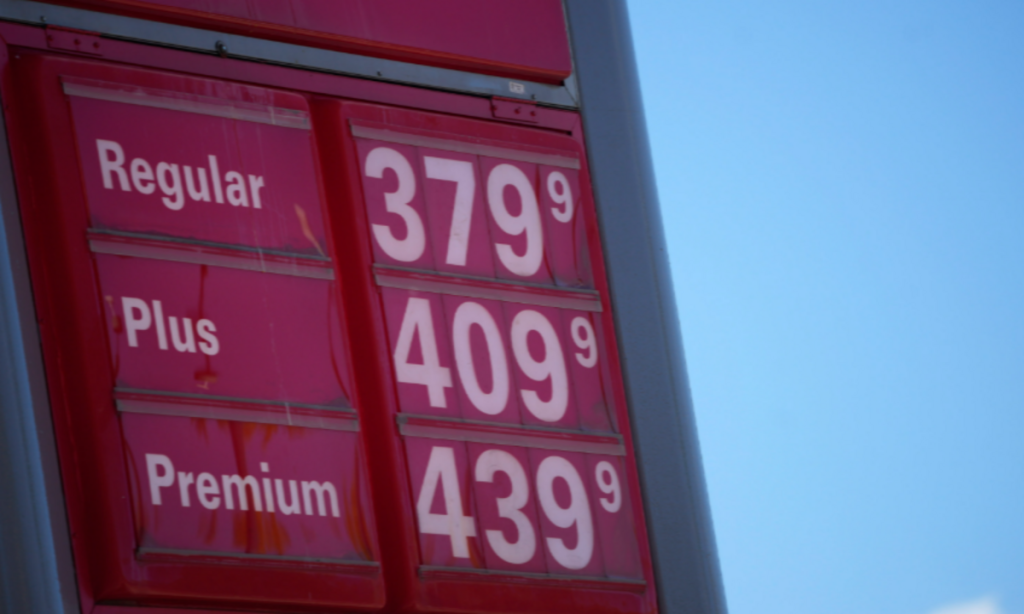Gas prices in Florida have been rising recently, and experts predict that this trend could continue in the coming weeks.
The average price for a gallon of regular unleaded gas has increased from $3.11 to $3.22 over the past week, marking a noticeable surge. This increase follows a period of fluctuation, leaving many drivers wondering what is causing the rise and whether they can expect further price hikes.
What’s Behind the Gas Price Increase?
Several factors are contributing to the rise in gas prices across Florida, and many of them are linked to changes in the global oil market. Here are some of the key reasons for the price spike:
Global Oil Market Trends: The global oil market has seen several shifts, and the cost of crude oil has been on the rise in recent weeks. When the price of crude oil increases, it has a direct impact on gasoline prices. Global events such as geopolitical tensions, supply chain disruptions, or changes in demand from major oil-consuming countries can drive oil prices higher, which, in turn, causes an increase in gas prices.
Refinery Maintenance: Seasonal maintenance at oil refineries has also contributed to the rise in gas prices. Refineries often perform routine maintenance during certain times of the year, and these interruptions in production can reduce the supply of gasoline, leading to higher prices.
Increased Demand: As the weather changes and people start traveling more, the demand for fuel tends to rise, especially during the summer months. This increased demand, combined with limited supply due to refinery issues, can push prices higher.
Price Cycling: In Florida, many gas stations engage in a practice known as “price cycling,” where retailers temporarily lower their prices to attract customers, then raise them again to restore their profit margins. This can create significant fluctuations in gas prices within a short period.
What to Expect in the Coming Weeks
Experts predict that gas prices in Florida could continue to rise, at least in the short term. The increase in crude oil prices, combined with seasonal changes and ongoing refinery maintenance, means that drivers should be prepared for higher prices at the pump.
Mark Jenkins, a spokesman for AAA – The Auto Club Group, noted that Florida’s gas prices have been “erratic” and that it wouldn’t be a surprise to see another uptick in the coming days. He added that while gas prices may stabilize eventually, the current factors influencing the market could push prices upward for some time.
According to Patrick De Haan, head of petroleum analysis at GasBuddy, the ongoing oil price hike may lead to another round of “price cycling” in Florida. Gas stations may increase prices again to recoup losses from previous discounts, potentially raising prices to around $3.29 per gallon.
Regional Price Differences in Florida
Gas prices in Florida can vary significantly depending on the region. For example, the West Palm Beach-Boca Raton area has some of the highest prices in the state, with averages around $3.25 per gallon. In contrast, areas like the Panama City region are seeing prices closer to $2.87 per gallon. These regional price differences can be attributed to factors such as local supply levels, competition among gas stations, and transportation costs.
How Florida Gas Prices Compare Nationally
While Florida is experiencing rising gas prices, the state’s average still falls below the national average. The national average price for regular unleaded gas is currently higher than Florida’s, which means that drivers in the state are somewhat insulated from the worst of the price hikes happening across the U.S. However, this doesn’t mean that Floridians are completely immune to rising costs, especially as oil prices continue to climb.
How Can Drivers Save Money?
With the continued uncertainty around gas prices, drivers may want to consider a few strategies to save money at the pump:
Use Gas Price Apps: Apps like GasBuddy allow users to track gas prices at stations in their area, helping them find the lowest prices available.
Consolidate Trips: By planning trips carefully and combining errands, drivers can reduce the amount of fuel they use, saving money over time.
Maintain Your Vehicle: Ensuring that your car is in good condition can help improve fuel efficiency. Simple actions like keeping your tires properly inflated and using the right grade of motor oil can make a difference.
Drive Smart: Avoiding aggressive driving, such as rapid acceleration or speeding, can help conserve fuel and reduce overall costs.
Looking Ahead
As the summer months approach, gas prices are expected to remain volatile. Drivers in Florida may see fluctuations in the price at the pump, driven by the ongoing changes in the global oil market, seasonal demand, and refinery maintenance. While it’s difficult to predict exactly where prices will go in the next few weeks, drivers should stay informed and be prepared for the possibility of further price increases.
Florida gas prices are on the rise, and the future looks uncertain as several factors are influencing the price at the pump. With global oil prices continuing to climb and seasonal changes affecting supply and demand, Floridians should be prepared for higher gas prices in the near future. Keeping track of local gas prices and adopting smart driving habits can help mitigate the impact of these increases, but there’s no immediate relief in sight.
Disclaimer—Our team has checked this article to ensure its accuracy and eliminate any misinformation. We are committed to providing clear and reliable information for our readers.


